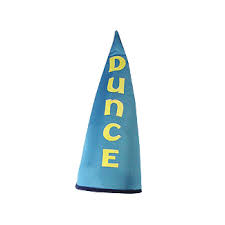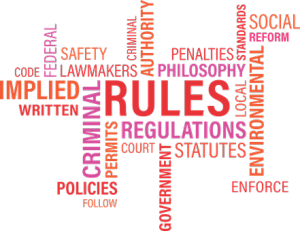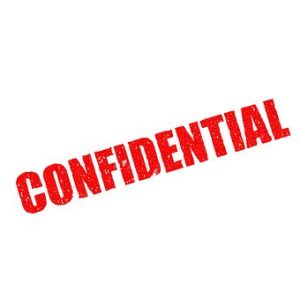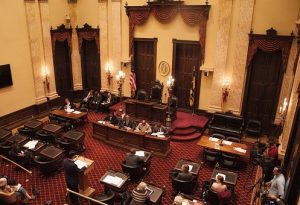Fiduciary Duties: Rights and Obligations to Fellow Owners
 The Benefits and Responsibilities of Ownership
The Benefits and Responsibilities of Ownership
Becoming the owner of a business has tremendous advantages: Owners can rise or fall based on their own merits, and when expenses are paid the remaining profits belong to the owners. However, there are also disadvantages, such as the risk that the business will lose money, and responsibility for the business’s payroll and debt. In addition to this stands business owners’ duties to their co-owners, be they partners in a partnership, shareholders in a corporation, or members in a limited liability company.
Under New Jersey business law, owners are placed in a special position of trust vis a vis their fellow owners, and the law thus imposes special responsibilities on them. These responsibilities are known as “fiduciary duties.”
 New Jersey Lawyers Blog
New Jersey Lawyers Blog


 Earlier this year the Enquirer published an embarrassing story with text messages and photos of Jeff Bezos, the owner of Amazon and the richest man in the world, with his mistress. Bezos also owns the Washington Post, which has investigated the Enquirer’s relationship with President Trump, and published critical stories about the Enquirer. The same day the story was published, Bezos and his wife, the author MacKenzie Bezos, announced their divorce. Bezos tasked his security chief, Gavin de Becker, with investigating how the Enquirer obtained the text messages and photos.
Earlier this year the Enquirer published an embarrassing story with text messages and photos of Jeff Bezos, the owner of Amazon and the richest man in the world, with his mistress. Bezos also owns the Washington Post, which has investigated the Enquirer’s relationship with President Trump, and published critical stories about the Enquirer. The same day the story was published, Bezos and his wife, the author MacKenzie Bezos, announced their divorce. Bezos tasked his security chief, Gavin de Becker, with investigating how the Enquirer obtained the text messages and photos. regulation, licensing, and/or registration, garbage hauling is a particularly scrutinized industry.
regulation, licensing, and/or registration, garbage hauling is a particularly scrutinized industry. Some of the areas in which businesses make their largest investments of time and expense are trade secrets (including customer lists) customer relations and client development, and employee development. However, these interests may conflict, especially when highly placed employees leave a firm. This is an area of potentially bitter dispute in New Jersey business law and employment law.
Some of the areas in which businesses make their largest investments of time and expense are trade secrets (including customer lists) customer relations and client development, and employee development. However, these interests may conflict, especially when highly placed employees leave a firm. This is an area of potentially bitter dispute in New Jersey business law and employment law. are business entities. It is one of the strongest of New Jersey’s
are business entities. It is one of the strongest of New Jersey’s  Very often, a person or business will want to confer a benefit on a third party but will not be able to do so itself, for a variety of reasons. So then, to make sure the benefit will be conferred, it will enter into a contract with a person or business which has the ability to confer the benefit. The question, then, is what rights does the third-party beneficiary have?
Very often, a person or business will want to confer a benefit on a third party but will not be able to do so itself, for a variety of reasons. So then, to make sure the benefit will be conferred, it will enter into a contract with a person or business which has the ability to confer the benefit. The question, then, is what rights does the third-party beneficiary have? New Jersey’s Supreme Court adopted new rules which became effective September 1, 2018. These rules amend New Jersey’s Rules of Court to make the litigation of complex business law matters more efficient. This article discusses some of the major changes the new rules have brought about.
New Jersey’s Supreme Court adopted new rules which became effective September 1, 2018. These rules amend New Jersey’s Rules of Court to make the litigation of complex business law matters more efficient. This article discusses some of the major changes the new rules have brought about. Before you enter into an agreement to purchase a franchise, it is vital to review and understand the documents you are being required to sign. You will be required to execute the following documents:
Before you enter into an agreement to purchase a franchise, it is vital to review and understand the documents you are being required to sign. You will be required to execute the following documents: Businesses entering into negotiations with other businesses or persons often need to give the other party confidential information. For example, a business will need to give a potential buyer information regarding its revenue, expenses, customers, formulas, payroll, vendors, and pricing so that the potential buyer can formulate an offer during the due diligence period. If the deal falls through the seller will rightly want to ensure that the buyer which backed can’t use this information to compete with it or disclose it to competitors or customers.
Businesses entering into negotiations with other businesses or persons often need to give the other party confidential information. For example, a business will need to give a potential buyer information regarding its revenue, expenses, customers, formulas, payroll, vendors, and pricing so that the potential buyer can formulate an offer during the due diligence period. If the deal falls through the seller will rightly want to ensure that the buyer which backed can’t use this information to compete with it or disclose it to competitors or customers. Montclair State University has spent the last decade or so trying to obtain approval from the County of Passaic and the City of Clifton to construct a roadway which would intersect with a county road. Both the County and the City raised concerns about the proposed development and Montclair State made significant efforts in an attempt to address those concerns. In 2014, Montclair State submitted an application to Passaic County for a permit to install traffic controls at the intersection.
Montclair State University has spent the last decade or so trying to obtain approval from the County of Passaic and the City of Clifton to construct a roadway which would intersect with a county road. Both the County and the City raised concerns about the proposed development and Montclair State made significant efforts in an attempt to address those concerns. In 2014, Montclair State submitted an application to Passaic County for a permit to install traffic controls at the intersection.